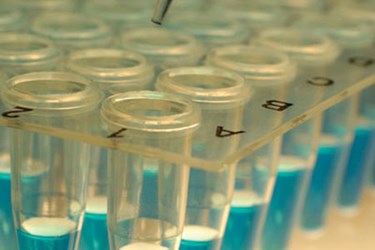GSU Researchers Develop New Measles Drug

Researchers at the Institute for Biomedical Sciences at Georgia State University, the Emory Institute for Drug Development, and the Paul-Ehrlich Institute in Germany have developed a new antiviral drug that can protect people infected with measles from getting sick. The drug can also stop those infected from spreading the disease to other people.
The researchers announced that they tested the drug, called ERDRP-0519, on animals infected with a disease related to the one that causes measles in humans. The results, recently published in the current issue of the journal Science Translational Medicine, showed that when infected animals received the drug, the levels of the virus dropped significantly. The drug also stopped the disease from killing animals.
Scientists believe that the drug could be stockpiled and used in the event of a human outbreak. There have been 150,000 measles related deaths each year since 2007. In European nations where the disease was once thought to be limited, the highly infectious disease has reemerged due to a lack of vaccine coverage as parents choose to not vaccinate their children.
Dr. Richard Plemper of Georgia State University said that the drug could be used to treat patients who had been in contact with someone infected with measles but hasn’t started showing symptoms yet.
“The emergence of strong antiviral immunity in treated animals is particularly encouraging, since it suggests that the drug may not only save an infected individual from disease but contribute to closing measles immunity gaps in a population,” Dr. Plemper said.
The researchers stated that the drug is not meant to be used as a replacement for a vaccination, and that vaccination for the disease would still be necessary. Instead, the researchers said that the drug is just another tool for humans to use against outbreaks of the disease.
While the study’s findings are positive, more research is needed before the drug can be tested for human use.
